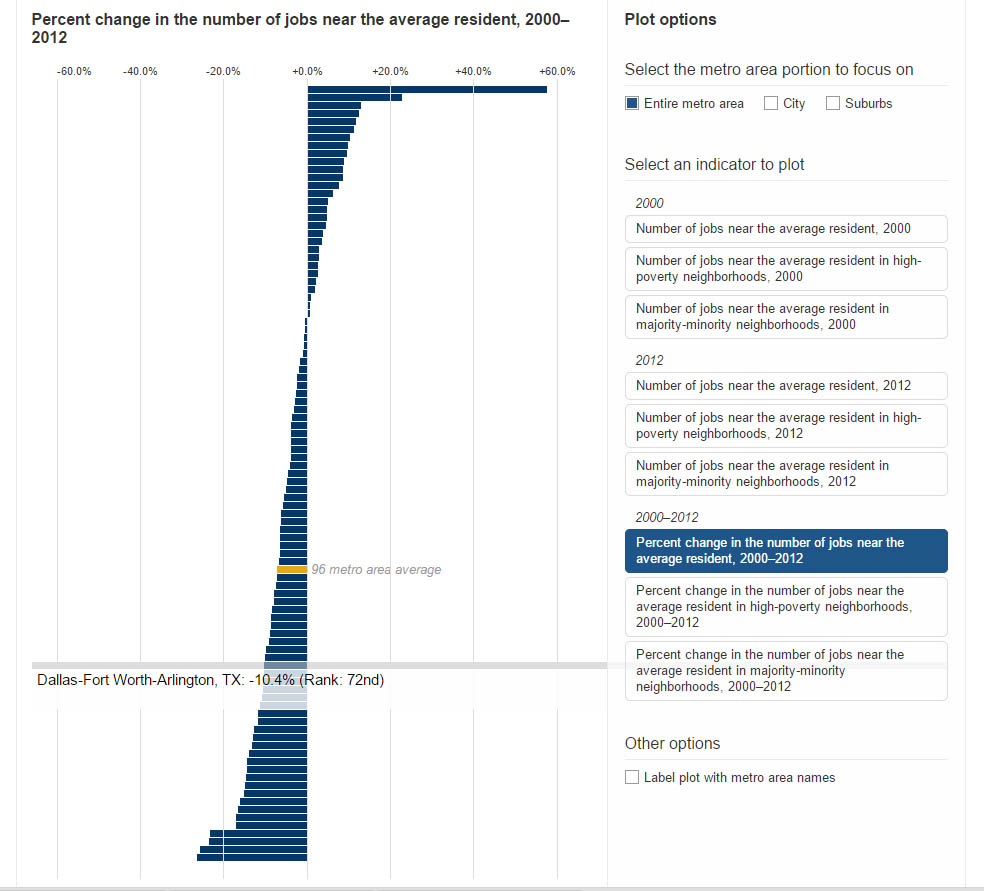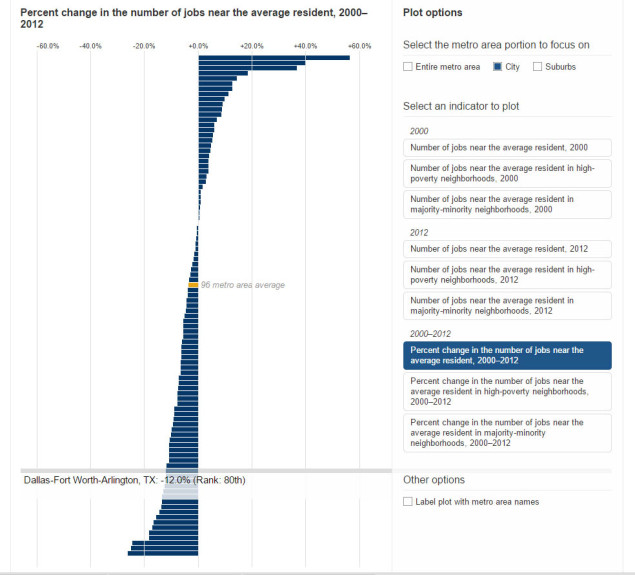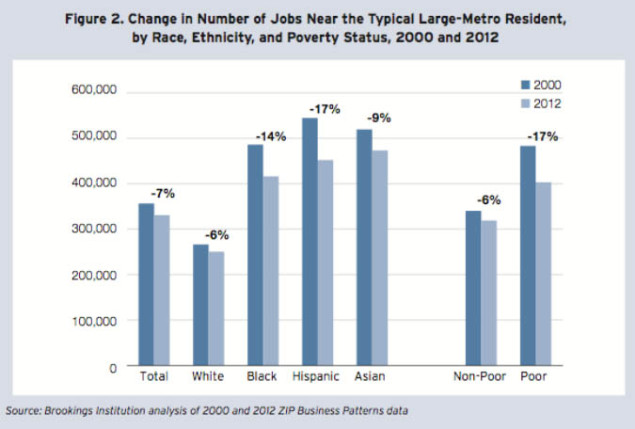A new report from Brookings Institute is tracking not so much job loss/gain, but job losses and gains near where people live in terms of the amount of jobs near people and change in average commute length. Not to spoil the surprise, but car-dependent places perform poorly. As we know, car-dependent places have the most highway capacity per capita. Will more highway capacity really help?
Brookings ranked 96 metros in this study. In the case of average commute length, here is the bottom of the list (see pp. 20-21):
96. Atlanta – 12.8
95. Houston – 12.2
95. Dallas-Fort Worth-Denton-Plano-Frisco-Prosper-Really when do these other communities start raising hell about how they’re not included in the metro smorgasbord? – 12.2 (tied!)
93. Phoenix – 11.4
92. Nashville – 11.0
91. Detroit – 10.4
90. Birmingham – 10.1
89. St. Louis – 10.0
Now think about these cities in terms of median income. Now think about what those median incomes in Texas might be without oil. Zoinks.
—–
They also have a handy interactive infographic where you can toggle metro data to city to suburbs and compare how each are fairing. Here’s the DFW area:
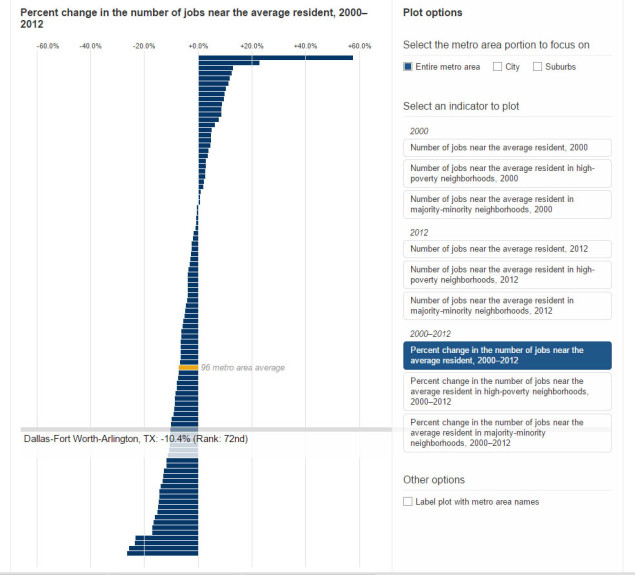
As you can see, not only do we currently rank tied for 2nd to last in distance to jobs. We rank 72nd out of 96 in % change in number of jobs (proxy for opportunity) near people. Jobs are getting farther and farther away from people. Is that bad? Yeah, that’s bad. Not only does it mean congestion is inevitable (everyone is in cars without other choice), an increasing amount of people who can’t afford cars are thus out of luck if they want a job and many will choose to opt out, and the longer a commute is the less happy people are.
Looking at just the city:
It gets worse. Dallas is 80th with a -12.0% change. Compared to the suburbs:
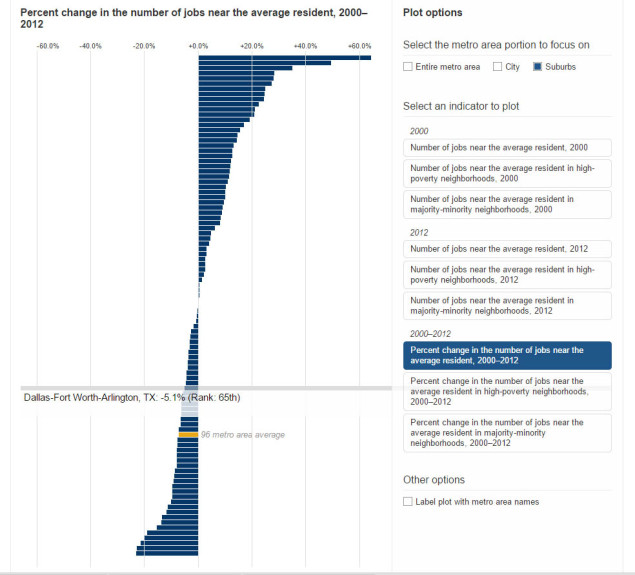
That’s kind of interesting. Even though the suburbs are adding oodles of jobs they’re actually still getting farther and farther away from people. Still sprawling. Forcing an increasing number of people to have to own cars (a two-car household costs 43% of gross (pre-tax) median Dallas household income) just to collect a paycheck.
And this disproportionately affects the poor (much like compulsory car ownership):
We can’t really think more highways and car-dependence is the answer can we? When it’s the cities that built the most highways that are thus the most sprawling, car-dependent, and poor?
It’s time for a new strategy that brings jobs to housing and housing to jobs to correct the last 40-50 years of destructive planning and infrastructure investment that has only served to minimize opportunity, punish the poor, and waste public monies.


